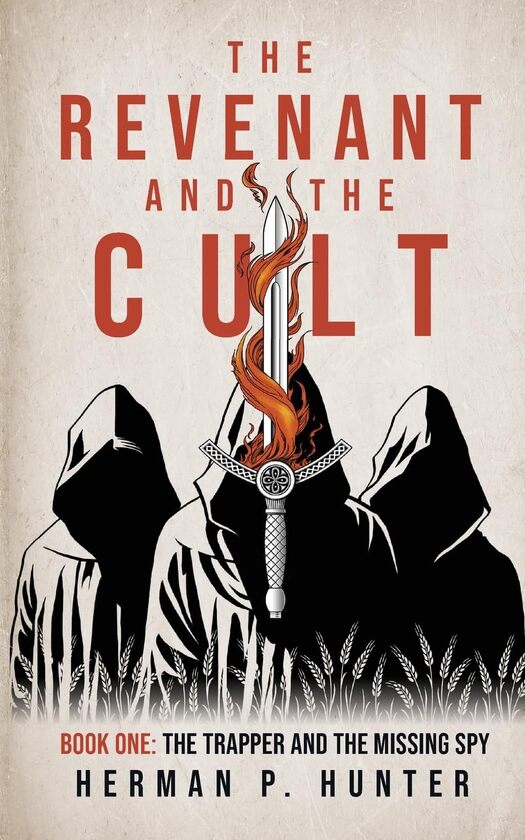There are different ways to combine genres. A writer can take things like dragons and wizards, fantasy things, and pit them against cowboys for a fantasy western. I’ve dabbled in that sort of thing a few times and it’s gratifying, if fairly simple. It’s another thing entirely to take to the motifs of a western and subtly weave them into a fantasy story.
This is where Herman P. Hunter excels.
The Revenant and the Cult - Book One: The Trapper and the Missing Spy is his followup to The Revenant and the Tomb, which was intended as a standalone novel. However, the Halsedric character was so well received it only made sense to send him on another adventure. This time the resurrected hero and his warrior companion, Herodiani (whom we might compare to an Elf), are looking for a path to seat of dark power so they can stomp it out. Potentially watched by unseen eyes, a direct approach is unwise. So they need a spy/scout/guide.
Unfortunately, they had one and he’s missing.
Halsedric hires a second man, Roe, a trapper familiar with the general area and meets with him before he can suffer the same fate. Not only does Roe know the geography, he also knows the honest farmers carving out lives from the land. This is where the western elements come into play. There’s a new political power in the nearby city, a man named Karne, who is trying to buy up all the land. And if that isn’t bad enough, things are taking livestock and men in the dark.
In the great western tradition, it’s a landgrab.
Most of the novel is about gathering information. Bad things are happening, but before Halsedric can go in with sword blazing he needs to who’s who, what they’re doing, and why. But in this lawless world, where anyone can tell him a lie or slip a knife in his guts with equal ease, acquiring that information is difficult. It’s fairly obvious who can be trusted, but they don’t know much. And when the bad guys are fanatical enough to kill themselves rather than talk…
You get the idea.
One of the things I appreciate most about Hunter’s writing is the way he builds worlds that feel lived in, dusty and old. All the Tolkien-esque tropes are here, but rather than used as crutches for lazy storytelling, they’re gateways to ease us into his unique fantasy realm. Unlike many who have trod this path, Hunter’s stories have a moral core with clearcut good and evil, with just enough questions and shades of gray for some conflict.
As a reader, there’s only one thing I wish was different, and it’s small.
Hunter takes an elevated voice for his prose, which lifts his story to the level of Robert E. Howard and sets us firmly in a different reality. However, sometimes the descriptions get repetitive and more variety in certain word choices would be appreciated. It’s a minor flaw in the grand tapestry of the narrative. The pace of story is tight and I read the first five chapters in an afternoon, I was so engrossed.
Now I have to wait.
This only part one, and, while it doesn’t end on a cliffhanger, the story is unfinished, leaving us hungry for the rest.

























